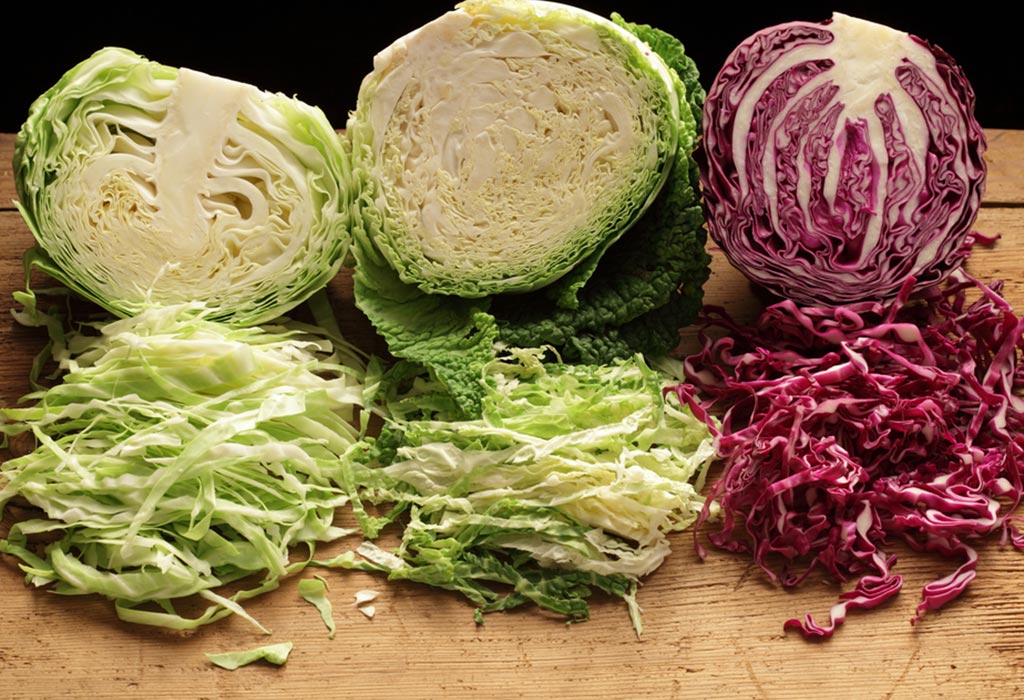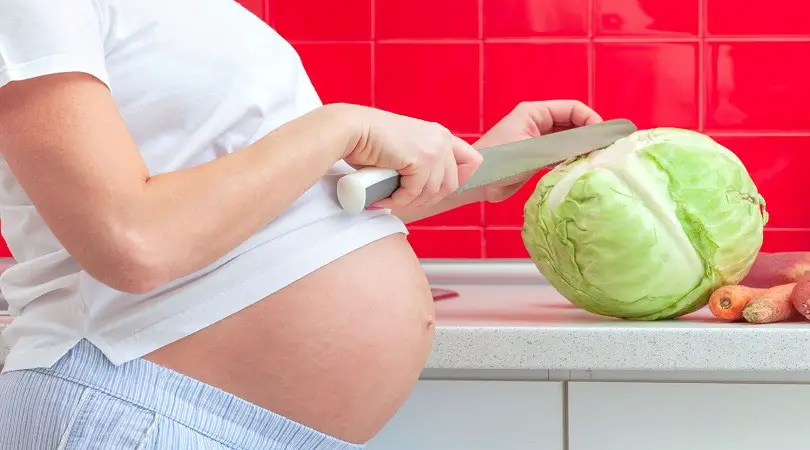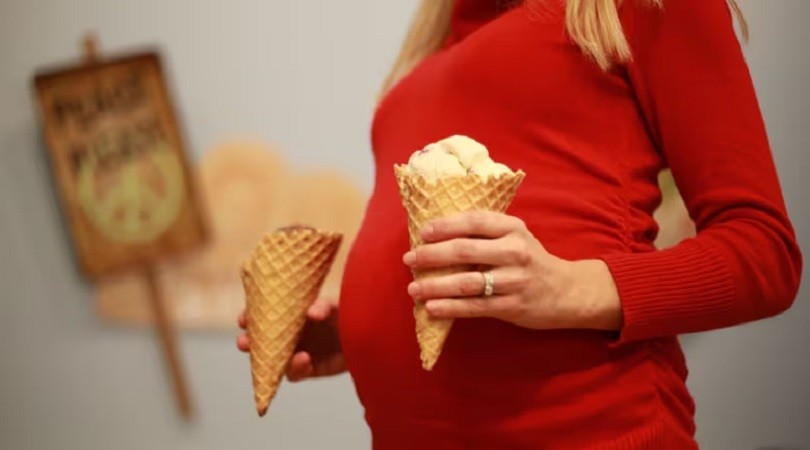Last Updated on January 6, 2025
Yes, you can eat cabbage while pregnant. Cabbage is a nutritious vegetable that can provide essential vitamins and minerals for you and your baby’s health.
Maintaining a healthy and balanced diet during pregnancy is crucial for the well-being of both the expectant mother and the growing baby. As an expecting parent, you may be wondering about the safety and suitability of various foods, such as cabbage.
Cabbage is a versatile vegetable known for its crunchy texture and subtle flavor. It is packed with nutrients like vitamin c, fiber, and folate, all of which are beneficial during pregnancy. However, it is important to understand the impact of cabbage on your pregnancy journey and any precautions that need to be taken into account. In this article, we will explore the benefits of including cabbage in your pregnancy diet, potential considerations, and tips on incorporating this leafy green into your meals. So, let’s dive in and uncover the facts about eating cabbage while pregnant.

Credit: parenting.firstcry.com
Nutritional Benefits Of Cabbage During Pregnancy
Cabbage is a versatile and nutrient-packed vegetable that can be enjoyed in various dishes. But what about during pregnancy? Can you safely consume cabbage while expecting? The answer is a resounding yes! In fact, including cabbage in your pregnancy diet comes with a plethora of nutritional benefits that can support both your health and that of your growing baby.
Let’s take a closer look at some of the key advantages of incorporating cabbage into your meals during this special time.
High In Essential Vitamins And Minerals
- Cabbage is rich in essential vitamins and minerals that are crucial for a healthy pregnancy, such as vitamin c, vitamin k, vitamin b6, folate, and manganese.
- Vitamin c helps boost your immune system and aids in the development of your baby’s bones and connective tissues.
- Vitamin k plays a vital role in blood clotting, which is essential during childbirth.
- Proper intake of vitamin b6 is important for brain development in the fetus.
- Folate is crucial for the formation of your baby’s neural tube and can help prevent birth defects.
Rich In Fiber For Healthy Digestion
- Cabbage is an excellent source of dietary fiber, which can help prevent constipation, a common issue during pregnancy.
- Adequate fiber intake promotes healthy digestion and can alleviate discomfort such as bloating and gas.
- The high fiber content in cabbage can also contribute to a feeling of fullness, aiding in maintaining a healthy pregnancy weight.
Supports Immune System Function
- During pregnancy, your immune system may be slightly suppressed, making you more susceptible to infections.
- Cabbage contains immune-boosting properties due to its high concentrations of antioxidants and phytonutrients.
- Including cabbage in your diet can help support your immune system, protecting both you and your baby.
Promotes Healthy Fetal Development
- The array of vitamins, minerals, and antioxidants found in cabbage are essential for healthy fetal development.
- Proper intake of these nutrients can aid in the growth and development of your baby’s organs, bones, and immune system.
- Cabbage is also low in calories and fat, making it a nutritious choice for maintaining a healthy pregnancy weight.
Incorporating cabbage into your pregnancy diet can provide you and your baby with an abundance of nutritional benefits. From essential vitamins and minerals to fiber-rich properties and immune system support, cabbage makes a valuable addition to a well-rounded prenatal eating plan.
So go ahead and savor the diverse dishes that this leafy vegetable has to offer, knowing that you are nourishing yourself and your little one with each bite.
Potential Risks And Precautions Of Eating Cabbage During Pregnancy
Cabbage is a versatile and nutritious vegetable that can be enjoyed in various dishes. However, if you’re pregnant, it’s important to consider the potential risks and take necessary precautions when consuming cabbage. This article will highlight some key points to keep in mind when it comes to eating cabbage during pregnancy.
Possibility Of Gas And Bloating
- Cabbage is known to be a high-fiber food, which may lead to increased gas and bloating. This can be uncomfortable for pregnant women who may already experience digestive issues.
- To minimize the chances of experiencing gas and bloating, it’s recommended to cook cabbage thoroughly, as this can help make it easier to digest.
- Chewing your food slowly and thoroughly can also help reduce these symptoms, allowing your body enough time to break down the fibers in cabbage.
Consideration For Cabbage Allergies Or Sensitivities
- Although allergies to cabbage are rare, it’s important to be aware of any potential sensitivities during pregnancy.
- If you notice any allergic reactions such as itching, swelling, or difficulty breathing after consuming cabbage, it’s crucial to consult with your healthcare provider.
- They can determine whether you have a cabbage allergy or if it’s just a temporary reaction due to pregnancy hormones.
Moderation In Consumption To Avoid Thyroid Issues
- Cabbage belongs to the cruciferous vegetable family, which contains compounds called goitrogens that can interfere with thyroid function.
- While small amounts of raw or cooked cabbage are generally safe, excessive consumption may pose a risk, especially if you already have an underactive thyroid.
- To prevent any potential issues, it’s advisable to consume cabbage in moderation and ensure a varied diet that includes other nutrient-rich foods.
Cooking Methods To Reduce The Risk Of Foodborne Illness
- Like any other food, proper food handling and cooking methods are crucial when preparing cabbage during pregnancy.
- Washing cabbage thoroughly before cooking is essential to remove any dirt or bacteria present on the leaves.
- It’s recommended to cook cabbage until it reaches an internal temperature of 165°f (74°c) to ensure any potential foodborne pathogens are eliminated.
- Avoid consuming raw or undercooked cabbage during pregnancy, as this increases the risk of developing foodborne illnesses such as salmonella or e. coli.
Remember, while cabbage can be a healthy addition to your diet during pregnancy, it’s always essential to discuss your dietary choices with your healthcare provider. They can provide personalized guidance and ensure you make the best choices for your specific needs.
Frequently Asked Questions Of Can I Eat Cabbage While Pregnant?
Can I Eat Cabbage While Pregnant?
Yes, you can eat cabbage while pregnant. It’s packed with nutrients and fiber that benefit both you and your baby.
Is Cabbage Safe To Consume During Pregnancy?
Yes, cabbage is considered safe to consume during pregnancy. However, make sure to wash it thoroughly and cook it properly to avoid any potential risks.
What Are The Benefits Of Eating Cabbage During Pregnancy?
Eating cabbage during pregnancy provides essential vitamins, minerals, and antioxidants that support the development of your baby and boost your immune system.
How Should I Include Cabbage In My Pregnancy Diet?
You can include cabbage in your pregnancy diet by adding it to salads, stir-fries, soups, or steaming it as a side dish. Get creative with recipes to enjoy its nutritional benefits.
Are There Any Risks Associated With Eating Cabbage While Pregnant?
While cabbage is generally safe, consuming excessive amounts of cabbage may cause gas or bloating. Moderation is key for a balanced pregnancy diet.
Conclusion
To sum up, cabbage is not only safe but also highly beneficial for pregnant women. Its rich nutritional profile consisting of vitamins, minerals, and antioxidants supports both the mother’s and the baby’s health during pregnancy. Cabbage is known to boost the immune system, aid in digestion, prevent constipation, and promote healthy brain development in the fetus.
Moreover, the presence of folate in cabbage helps in preventing neural tube defects and ensures proper growth of the baby. However, it is essential to cook cabbage thoroughly to eliminate any potential harmful bacteria. Nevertheless, if you experience any discomfort or allergies after consuming cabbage, it is advisable to consult your healthcare provider.
Overall, including cabbage in your pregnancy diet can contribute to a healthy and well-nourished pregnancy journey.











